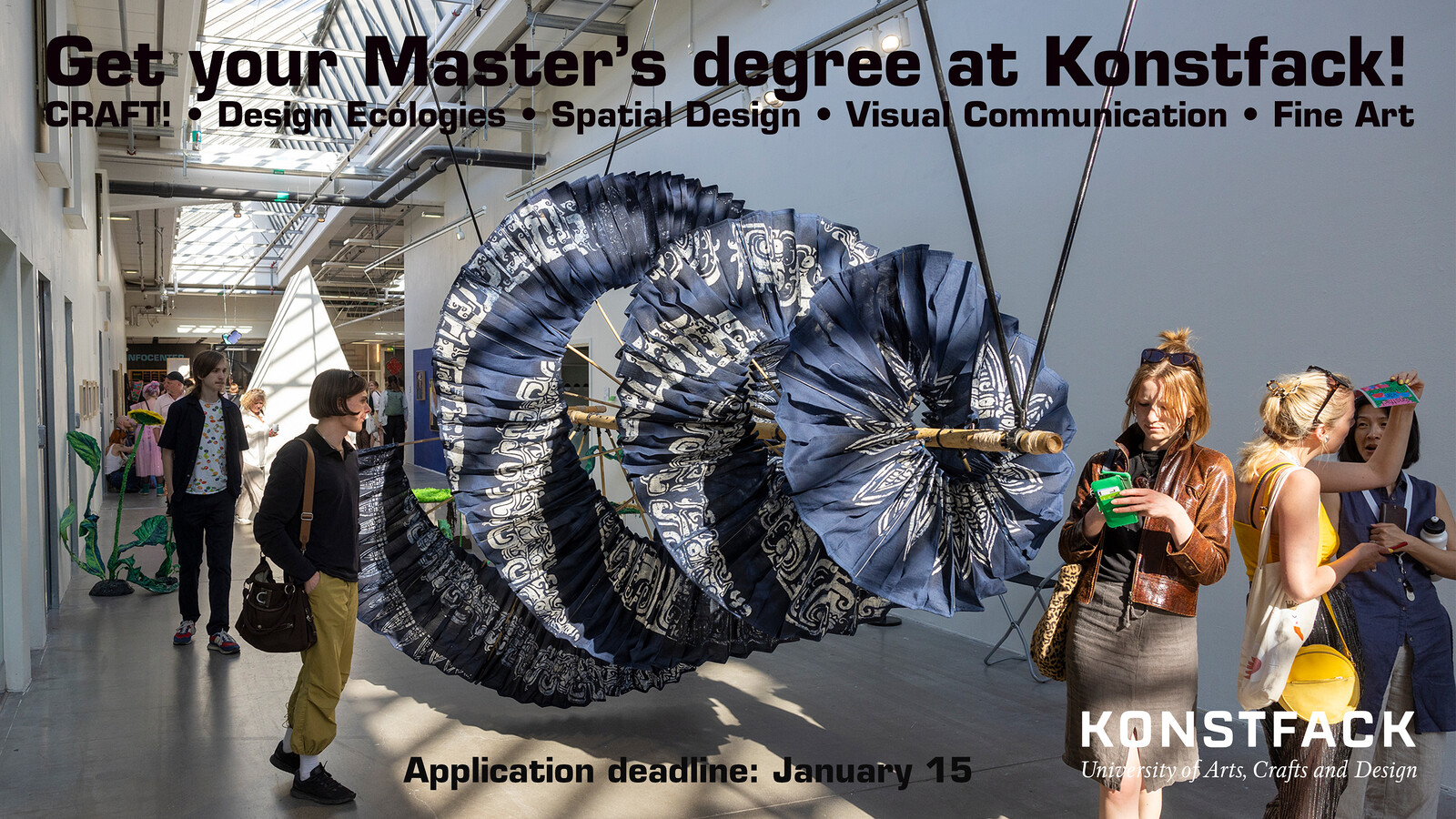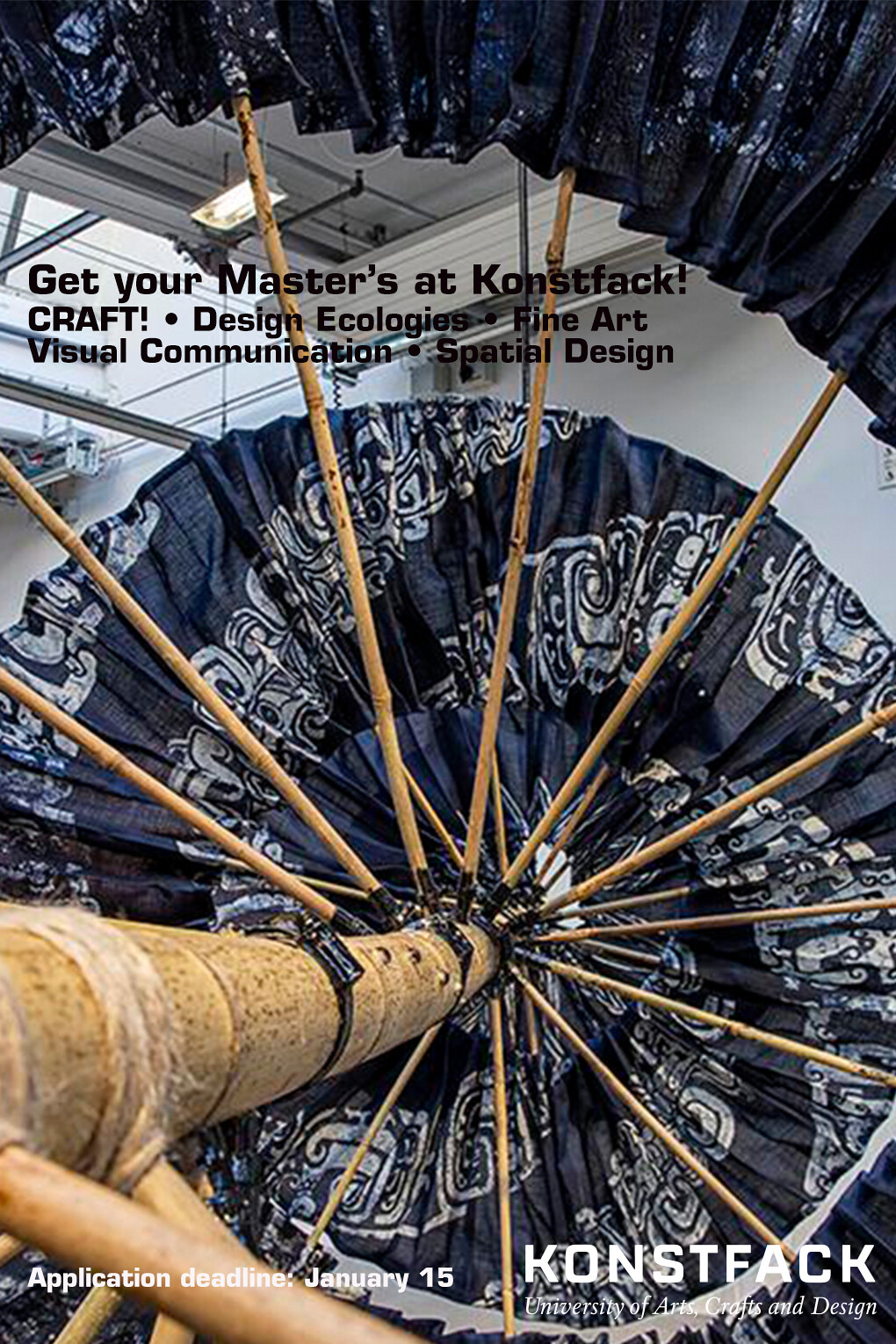A selection of 31 architects, studios and designers including Olalekan Jeyifous, Asif Khan and DAAR—Sandi Hilal and Alessandro Petti have been invited to participate in the Sharjah Architecture Triennial this autumn. Curated by Tosin Oshinowo and organised around the theme The Beauty of Impermanence: An Architecture of Adaptability, the Triennial runs from November 11, 2023 to March 10, 2024. For its second edition, Oshinowo and her curatorial advisory board have invited participants from 27 countries to explore the potential of innovative design solutions borne out of conditions of scarcity in the Global South, offering a multi-faceted and international response to the theme and its implications for the future of the discipline.
Responding to the curatorial concept from the perspective of Sharjah and the wider region, RUÍNA will attempt to restore a vantage point lost to the city due to new development. Their project will use an architectural language associated with the building process to demonstrate the intermediacy between construction and demolition. Olalekan Jeyifous will build on the discourse that surrounds Sharjah’s ever-evolving sense of national identity, pursuing a world-building exercise that theorises an alternate retro-futurist timeline, emerging from the discovery of oil and the subsequent development boom in the emirate.
Offering a look at community-based design solutions from across the world, Natura Futura will respond to the curatorial theme in both the short-term and long-term. They will exhibit documentation of a floating housing community project in Ecuador’s Babahoyo River, built over the course of the Triennial planning and production. Hunnarshala Foundation with Aabhat, Aina and Sankalan will narrate the work of the Hunnarshala Foundation, a not-for-profit organisation based in Bhuj, Gujarat, that aspires towards sustainable habitats by empowering local communities and artisans.
Other projects will explore how material recycling, resource sharing and waste reuse can provide local, innovative and contextual solutions to conditions of scarcity. Hive Earth Studio will challenge the misconception that building with earth has its limits, presenting an intervention that asserts the sustainable and aesthetic qualities of an abundant material. Sumaya Dabbagh will examine the relationship between memory and materiality through an installation made from mud, celebrating the universal qualities of a material that conveys the cycle of life and death, growth and decay. Thomas Egoumenides will resist and critique the culture of waste by using materials constantly disregarded and discarded to create playful and poetic architectural scenarios. BUZIGHALL showcases its creative response to the impact of second-hand clothing on Uganda’s textile industry, while highlighting Sharjah’s role in this global supply chain.
Reflecting on the political undertones of Oshinowo’s theme, Formafantasma will present three films that delve into the intersection between industry, governmental policies and ecological harm. Fibre-artist Adrian Pepe will examine the origins and evolution of shelter by juxtaposing modernity and tradition through a material lens, speculating on the historical and contemporary narratives that emerge when nomadic pastoralism meets industrial capitalism.
Contemplating the theme in relation to the growing climate crisis, Asif Khan will present a new iteration of their short film ‘Kalpa’, presenting a geological journey that visually expresses the consequences of extraction on our planet. Collab: Henry Glogau & Aleksander Kongshaug will respond to the pressing global concerns of desalination and air purification, forming spaces of learning and congregation that charts a climate-conscious path forward.
Exploring the impact of global mechanisation and “progress” on traditional practices and styles, Abeer Seikaly will merge contemporary design practices with Bedouin tent making to recover the knowledge and intimacy lost in today’s production. Art and Culture Development Foundation of the Republic of Uzbekistan (ACDF) will explore the multicultural typology of Tashkent’s architectural heritage, rethinking the idea of modernism as a uniform, globally-orientated trend.
To coincide with the opening, a new publication Field Notes: On Scarcity will be launched reflecting on the various concepts explored and presented within the Triennial.
The full list of participants for the 2023 edition of the Sharjah Architecture Triennial: 51-1 Arquitectos (Peru); Abeer Seikaly (Jordan); Adrian Pepe (Honduras/Lebanon); Al Borde (Ecuador); Art and Culture Development Foundation of the Republic of Uzbekistan (ACDF); Asif Khan (UK); Bubu Ogisi (Nigeria); BUZIGAHILL (Uganda); Cave_bureau (Kenya); Collab: Henry Glogau & Aleksander Kongshaug (Denmark/New Zealand); DAAR—Sandi Hilal and Alessandro Petti (Italy/Palestine/Sweden); Dia Mrad (Lebanon); Formafantasma (Italy/Netherlands); Hive Earth Studio (Ghana); Hunnarshala Foundation with Aabhat, Aina and Sankalan (India); Limbo Accra (Ghana); Livingstone Mukasa and Omar Degan (Uganda/Somalia); Miriam Hillawi Abraham (Ethiopia); MOE+ Art Architecture (MOE+AA) (Nigeria); Natura Futura (Ecuador); Nifemi Marcus-Bello (Nigeria); Ola Uduku and Michael Collins (Nigeria/UK); Olalekan Jeyifous (USA/Nigeria); RUÍNA Architecture (Brazil); Sandra Poulson (UK/Angola); Sumaya Dabbagh (Saudi Arabia/UAE); Thao Nguyen Phan (Vietnam); Thomas Egoumenides (France/Tunisia); Wallmakers (India); Yara Sharif & Nasser Golzari (Palestine/UK); and Yussef Agbo-Ola (UK and Brazil).
Press office
Pelham Communications, T +44 (0) 20 8969 3959 / @pelhamcomms
Laura Callendar: laura [at] pelhamcommunications.com
Rel Hayman: rel [at] pelhamcommunications.com.
Sharjah Architecture Triennial, T +971 50 261 4423 / @sharjaharchitecture
Anum Laghari: anum [at] sharjaharchitecture.org.
About Sharjah Architecture Triennial
Founded in 2018 by Khalid Al Qasimi, Sharjah Architecture Triennial (SAT) is a platform for architecture and urbanism in a region that extends from West Asia to South Asia and the African continent. Physically anchored in Sharjah and the United Arab Emirates, SAT aims to engage diverse audiences and stakeholders in a collective conversation on architecture at the neighbourhood, city, and regional levels. Institutional research and programming support on-going critical reflection through exhibitions, publications, and public programmes in tandem with its international editions. SAT is committed to pursuing a multi-disciplinary approach that fosters an understanding of the broader role of architecture, including its relation to social and environmental issues.


